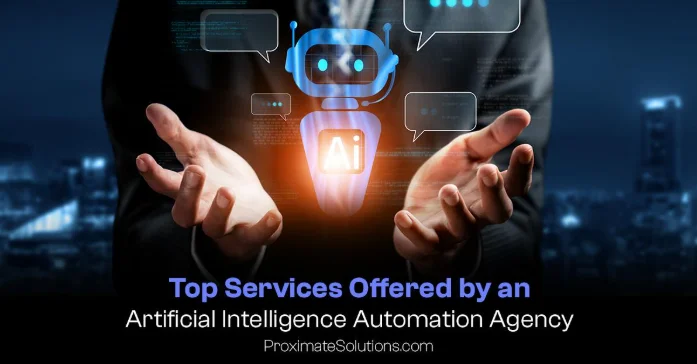How AI is Transforming Contractual Negotiations

Ten years ago, when we started Concord, I had to explain to people what contract management software was. Today, the conversation has completely shifted. It’s not about whether to digitize contracts—it’s about how AI is completely transforming the way businesses manage their relationships.
As someone who’s spent a decade in this space, I’ve had a front-row seat to this evolution. What I find most fascinating isn’t just the technology itself, but how it’s reshaping which teams handle contracts and what they can do with them.
The Technology Evolution of Contract Management
Contracts have followed a predictable digitization journey similar to many other business processes:
- Paper age (pre-2010): Physical documents in filing cabinets, managed manually
- Digitization age (2010-2015): PDF contracts, shared drives, basic e-signature
- Automation age (2015-2020): Template-based generation, workflow automation
- Intelligence age (2020-present): AI-powered analytics, risk detection, and optimization
But the most interesting shift isn’t the technology itself—it’s how it’s changing ownership of contract processes within organizations.
The Great Migration: From Legal to Operations and Finance
What we’re seeing across our 1,500+ customers is a significant trend: contract management is increasingly moving away from legal departments and into the hands of operations and finance teams.
This shift is happening because contracts aren’t legal documents—they’re business processes. Whether you’re buying something, selling something, or hiring someone, there’s always a contract in the middle. And AI is accelerating this transition by making contracts accessible to non-legal professionals.
Procurement contract management software is at the forefront of this transformation. With AI capabilities, procurement teams can now:
- Auto-classify vendor agreements: AI can instantly categorize contracts by vendor type, service category, and risk level
- Extract key terms automatically: Payment terms, renewal dates, and price increase clauses can be pulled without manual review
- Consolidate vendor relationships: AI can identify overlapping vendors and opportunities for consolidation
- Flag unfavorable terms: The system automatically highlights terms that deviate from your preferred standards
- Predict future spend: Based on contract patterns and historical data
The technology is now so sophisticated that procurement teams can manage their entire contract lifecycle with minimal legal involvement, improving efficiency while reducing bottlenecks.
How AI is Changing the Rules of the Game
What’s interesting about AI isn’t that it’s fundamentally changing things—it’s accelerating trends that were already in motion. Let me explain how it’s impacting contract management specifically:
1. Zero-touch processing for standard agreements
More than 90% of the contracts on our platform are signed without any negotiation or revisions. AI further streamlines this by flagging only the exceptions that need human attention.
For example, one of our customers processes over 10,000 vendor agreements annually. Before implementing AI, their legal team reviewed every single one. Today, they review less than 5%, focusing only on high-risk or non-standard agreements.
2. Turning contracts into data, not documents
Traditional legal contract management software focused on document storage and retrieval. Modern systems transform contracts into structured data that can be analyzed, queried, and integrated with other business systems.
This means legal teams can finally move from being document processors to strategic advisors. They can set policies and playbooks that guide AI systems in handling routine matters, while focusing their expertise on complex situations that truly require human judgment.
3. Predictive analytics and risk management
The most advanced contract systems now offer predictive analytics capabilities that go far beyond basic reporting:
- Risk scoring: Quantifying the risk profile of each agreement based on thousands of data points
- Obligation prediction: Forecasting which contractual obligations are most likely to be missed
- Renewal optimization: Suggesting the optimal time to begin renewal negotiations based on vendor performance and market conditions
- Compliance forecasting: Predicting potential compliance issues before they occur
These capabilities transform contracts from backward-looking records into forward-looking strategic tools.
The Future of Contract Technology
If I were to remove all constraints and reimagine contracts from scratch using today’s technology, they would look nothing like the dense, hard-to-read legal documents we use today.
When you look at contracts, they’re extremely inefficient. Every contract is different. Sometimes, the important parts are buried in the middle of 15 clauses, and you don’t really see them. It’s just not a very smart way to build relationships.
Within the next five years, I believe we’ll see:
- Structured data formats replacing traditional contracts: Think interactive dashboards rather than text documents
- AI-to-AI negotiation: Systems negotiating standard terms with minimal human involvement
- Real-time performance monitoring: Contracts that actively track fulfillment and alert to potential issues
- Cross-company contract intelligence networks: Anonymized insights across thousands of companies to identify optimal terms and conditions
The Tech Professional’s Guide to the Contract Revolution
If you’re a technology professional, here’s how to position yourself at the forefront of this transformation:
- Break down the silos between contracts and other systems: Contracts contain data that should flow to and from your CRM, ERP, and financial systems
- Advocate for unified contract repositories: Many organizations still have contracts scattered across departments
- Push for API-first thinking: Contract data needs to be accessible to other business systems through robust APIs
- Think beyond documents: The future is structured data, not prettier PDFs
- Build cross-functional expertise: The most valuable professionals will understand both the technology and the business implications
The organizations that thrive in the next decade won’t be the ones with the best contract language—they’ll be the ones that turn their contracts into competitive intelligence that drives business strategy.
Matt Lhoumeau is the Co-founder and CEO of Concord, a contract management platform used by over 1,500 companies worldwide. Prior to founding Concord, Matt worked for the second-largest telecom company in France, where he experienced firsthand the pain of manual contract management—an experience that inspired him to build Concord.
Recent Posts
Recent Comments

Top Services Offered by an Artificial Intelligence Automation Agency

How Can AI-Powered Inbound Call Centers Improve Customer Satisfaction?

How AI and Automation Are Changing Commercial Animation Studios

The Future of Front Desk Management: Why AI Receptionists Are Leading the Way

Why Electricians Recommend Upgrading Old Switches and Lights Today

Variance in Finance: How CFOs Can Leverage Analytics Tools for Informed Decision‑Making

Mastering Event Planning: Finding the Perfect Function Space
